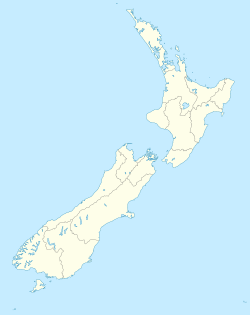Urupukapuka Island facts for kids
| Geography | |
|---|---|
| Location | Bay of Islands |
| Coordinates | 35°13′0″S 174°14′0″E / 35.21667°S 174.23333°E |
| Area | 2.08 km2 (0.80 sq mi) |
| Highest elevation | 106 m (348 ft) |
| Administration | |
| Demographics | |
| Population | 0 |
Urupukapuka Island is the biggest island in the Bay of Islands in New Zealand. It's about 7.3 kilometers from Paihia. This island is a popular stop for tour boats heading to the famous Hole in the Rock. You can also visit Urupukapuka Island by ferry for fun day trips from Paihia and Russell.
Contents
Discovering Urupukapuka Island's Past
Urupukapuka Island has a long and interesting history. It was once home to the Ngare Raumati tribe. They were one of the oldest tribes in this area.
Early European Connections
In 1839, a whaling captain named William Brind tried to buy land on the island. He claimed he bought 150 acres from Rewa, a chief of the Ngapuhi tribe. The payment was one horse, which was worth about 45 English pounds. However, Chief Rewa said the horse was just a small payment, not the full price. So, the sale was not valid.
Later in the 1800s, two Europeans rented some land on Urupukapuka. They used it for grazing animals. They started to clear the land and build fences.
Zane Grey's Fishing Spot
In 1927, a famous American author named Zane Grey made Otehei Bay his fishing base. He loved fishing there. Later, a very famous fishing resort was built in Otehei Bay. People from all over the world came to fish there.
Exploring Urupukapuka Island's Nature
Urupukapuka Island is 208 hectares (about 514 acres) in size. It has many beautiful sandy beaches. The water around the island is very clear. This makes it a great place for diving, especially on the east coast. You can see lots of amazing reef life there.
Wildlife and Plants
Indico and Paradise Bays are popular places for boats to anchor. They are also perfect for water sports. These bays are home to many shags, which are a type of bird. You'll also see lots of pohutukawa trees along the coast. These trees have bright red flowers.
Many interesting birds live and breed on the island. These include the New Zealand dotterel, the oystercatcher, the pied stilt, and the paradise duck.
Ancient History and Camping
The island has many interesting old sites from before Europeans arrived. You can take an archaeological walk to see them. There are signs that explain what you are looking at.
Urupukapuka is also a great place for "back to nature" camping. You can enjoy camping while also seeing how farming is done on the island.
 | Georgia Louise Harris Brown |
 | Julian Abele |
 | Norma Merrick Sklarek |
 | William Sidney Pittman |



